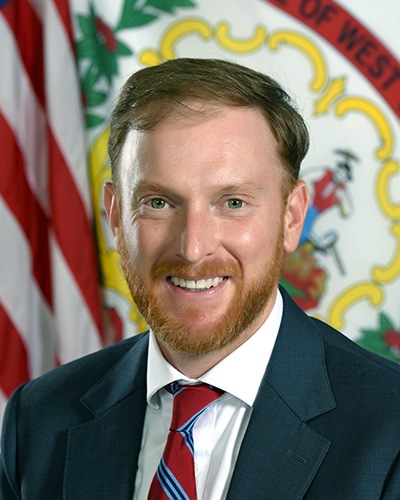ST. ALBANS, W.Va. — City leaders in the Kanawha Valley expressed their concerns and challenges with the issue of dilapidated buildings to West Virginia Auditor JB McCuskey on Monday.
McCuskey and his staff sat down with St. Albans Mayor Scott James, Hurricane Mayor Scott Edwards and Nitro Mayor Dave Casebolt and staffs to discuss details of the Community Resurrection and Economic Development Act.
The act was drafted by the auditor’s office and introduced at McCuskey’s request by Gov. Jim Justice that aims to save the buildings that can be saved and allocate $30 million to demolishing the ones that cannot. McCuskey said during the roundtable this will help cities streamline a difficult process and make costs lower.
“The system has issues, the way you can’t find all the aires to the property,” James told MetroNews about the process to tear down old buildings.
“This bill is going to address all the problems we are having and also offer some funding to getting these dilapidated houses and buildings torn down.”
James said all cities have processes to tear down dilapidated buildings but not enough funding. He said St. Albans has $40,000 in its budget to tear down properties but that only amounts to four to five houses per year. James noted the city has 20 properties that need to be torn down.
James believes this getting rid of these types of properties is a huge step to attracting those into your community and making those neighborhoods safer.
“It’s important for the community, the state and the counties to be able to get the structures down so it’s more appealing to people wanting to move into your community,” he said.
McCuskey, who is the land commissioner for the state as auditor, said the bill will revolutionize the way the Land Bank is operated in West Virginia.

A release on the act sent out by McCuskey’s office said the first goal of the bill addresses properties that can be saved and incentivizes ownership and repurposing of abandoned lands. The bill offers a hardship plan to property owners to allow for repayment arrangements or tax forgiveness when one or more conditions are met.
If the taxes are delinquent and the property ends up in the Auditor’s Office, it will first be offered to owners of neighboring parcels of land, then the city or county in which it sits, then nonprofit corporations and charitable groups, a release said.
McCuskey said his office is also partnering with the West Virginia Housing Development fund to identify select properties to entice teachers, doctors, and other essential workers to certain areas in the state, and to help people who have successfully completed drug recovery rebuild their lives.
“West Virginia is in the crosshairs right now of a bunch of people who say “that’s a lifestyle I can get behind, that’s someone who I want as a neighbor.” In order for us to capitalize and maximize on our opportunity, it’s time for rebuilding our baseline infrastructure,” McCuskey told the media after the Monday event.
According to his office, the second piece of the legislation deals with helping communities tear down dilapidated structures. A release stated that cities and counties have been spending millions from their general revenue budget to do this piecemeal and McCuskey believes awarding larger, regional contracts to tear down several buildings at once will provide a major cost savings to the state, cities, and counties.
McCuskey said the plan would be to set money into five regions, where bidding would go out into large-scale demo projects based on the regions.
State officials estimate there are 15,000 dilapidated structures in West Virginia. McCuskey has been to numerous places around the state holding similar meetings including Wheeling.
@ViceMayorWhg and I met with @WVAuditor yesterday to discuss his proposed legislation for a State fund to help cities demolish blighted properties for which rehab is not a viable option. We appreciate his effort to foster a statewide partnership on this tough issue. #wheelingwv pic.twitter.com/a81Lig2h9J
— Mayor Glenn Elliott (@MayorWheeling) January 28, 2022
Some other highlights of the bill:
– Creating a statewide uniform process for collection and enforcement of property taxes
– Changing the methodology for calculating interest and penalties for redeemed taxes
– Shorting the lengthy existing time periods for redeeming delinquent taxes and returning the abandoned property back to the books before it becomes uninhabitable
“We believe the process will get rid of more dangerous homes faster and give these cities a leg up as they are all trying so hard to make themselves, marketable, beautiful and safe,” McCuskey said.


